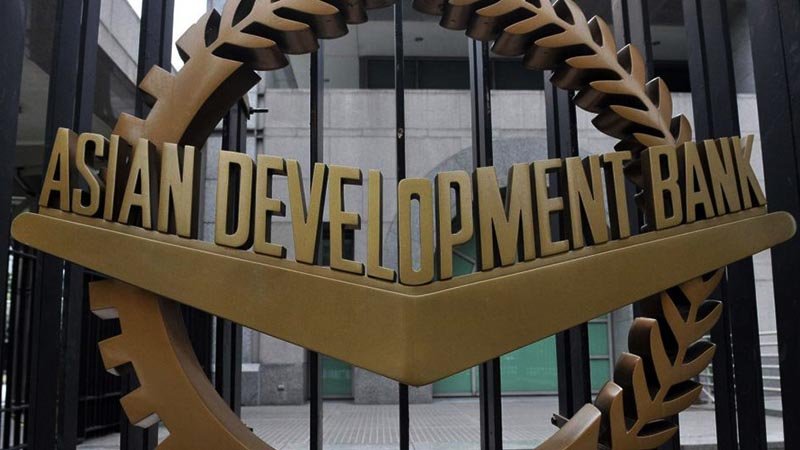Double digit growth in 2024: ADB

The Asian Development Bank (ADB) projects Bangladesh’s GDP growth to remain at 8 percent but also hinted that at the current rate of development it can reach double digit by 2024. The Manila based credit lending organisation made the projection in a report titled "Asian Development Outlook 2019 Update", released on Wednesday.
"The industry sector would play vital role in the growth, the trade war between China and USA would help increasing export of Bangladesh. Besides, the growth will get a boost because of the ongoing reform in infrastructure and move to improve the business climate," the outlook stated. Meanwhile, the “Faster Project Implementation Week 2019,” observed by ADB also ended on Tuesday.
“Faster project implementation is key to effective development while the better-quality project implementation could further accelerate the pace of development and spread benefits more equitably,” said Country Director of ADB, Manmohan Parkash focusing on the objective of the week. He recommended three pillars of faster project implementation which are efficient procurement, sound contract management, and good governance.
“Completing projects faster helps people benefit early.” “The learning of this Week can be applied to all projects, including ADB-assisted projects,” he added. ADB organized the “Faster Project Implementation Week 2019” that ended on Wednesday, opening formally at the Pan Pacific Sonargaon Hotel in Dhaka on September 21 and later at BRAC-CDM, Rajendrapur, Savar.
Parkash called for further reforms including giving delegation of authority together with higher accountability to operational staff to expedite procurement processes. He also highlighted ADB’s new procurement policy that adopts principle and risk-based approaches that includes Quality and Value for Money, in addition to Economy, Fairness, Efficiency, and Transparency as the new principles of procurement.
Under contract management, three fundamental aspects-- quality control, time control, and price control were indicated as requirements to successful contract management in procurement, bidding, and project implementation phases. Parkash also underscored the need to ensure good governance by conducting proper due diligence, and mitigating fraud, corruption, collusion, and coercion in procurement and contract implementation to achieve better development outcomes.
The Faster Project Implementation Week 2019 was organised with the theme of “Delivering Faster and Better Development Outcomes,” focused on collaborative learning and sharing of knowledge on development projects through interactive workshop sessions for government officials involved in development activities.
At the closing ceremony on the first day of the event, Minister of Agriculture Muhammad Abdur Razzaque was the chief guest, while Alvaro Salas, Ambassador of Spain to Bangladesh and Hitoshi Hirata, Chief Representative, Bangladesh Office, Japan International Cooperation Agency (JICA) were special guests. Over 200 government project directors, project staff, development experts, and representatives of consultants and contractors attended the event.
As part of the week on 24-25 September, participants also discussed the details of how to further improve procurement processes and contract management at the BRAC-CDM, Rajendrapur. ADB and the Bangladesh have a long and enduring partnership of over 46 years. Bangladesh is the second largest portfolio in ADB, comprising 54 projects under implementation with a current portfolio of over $10 billion. In the last five years, volume of ADB operations in Bangladesh tripled.
In 2018, ADB approved highest level of support of $4.8 billion to Bangladesh, with eight sovereign projects totaling $2.2 billion in loans and grants, $16.5 million in technical assistance, and $2.6 billion mobilized in co financing. ADB is committed to achieving a prosperous, inclusive, resilient, and sustainable Asia and the Pacific, while sustaining its efforts to eradicate extreme poverty. In 2018, it made commitments of new loans and grants amounting to $21.6 billion. Established in 1966, it is owned by 68 members—49 from the region.



